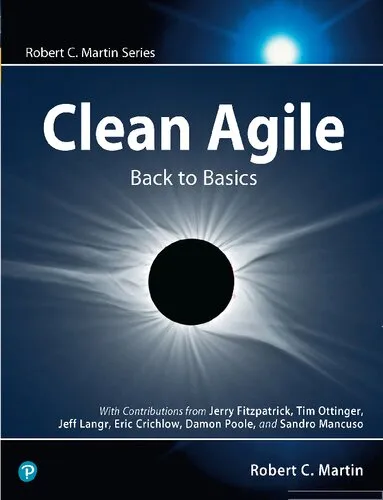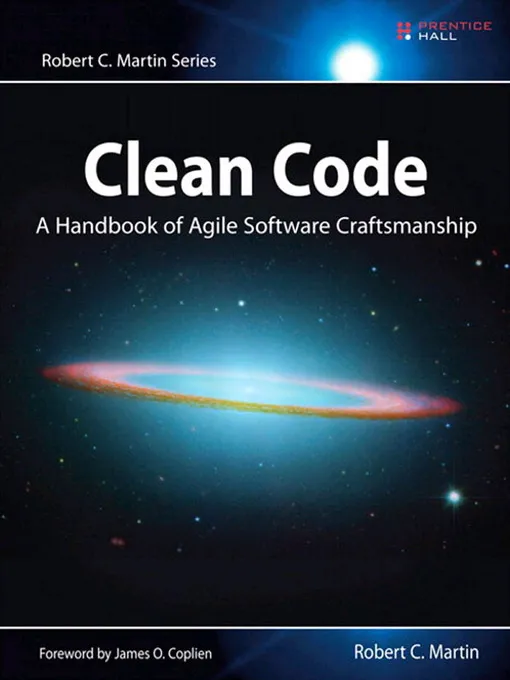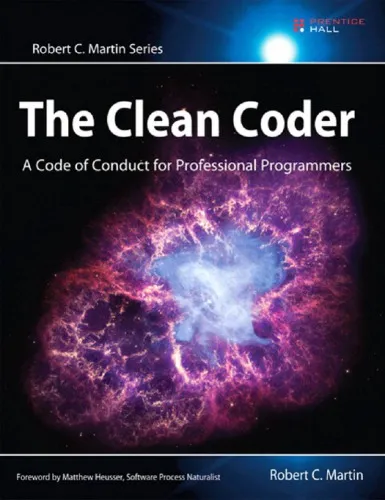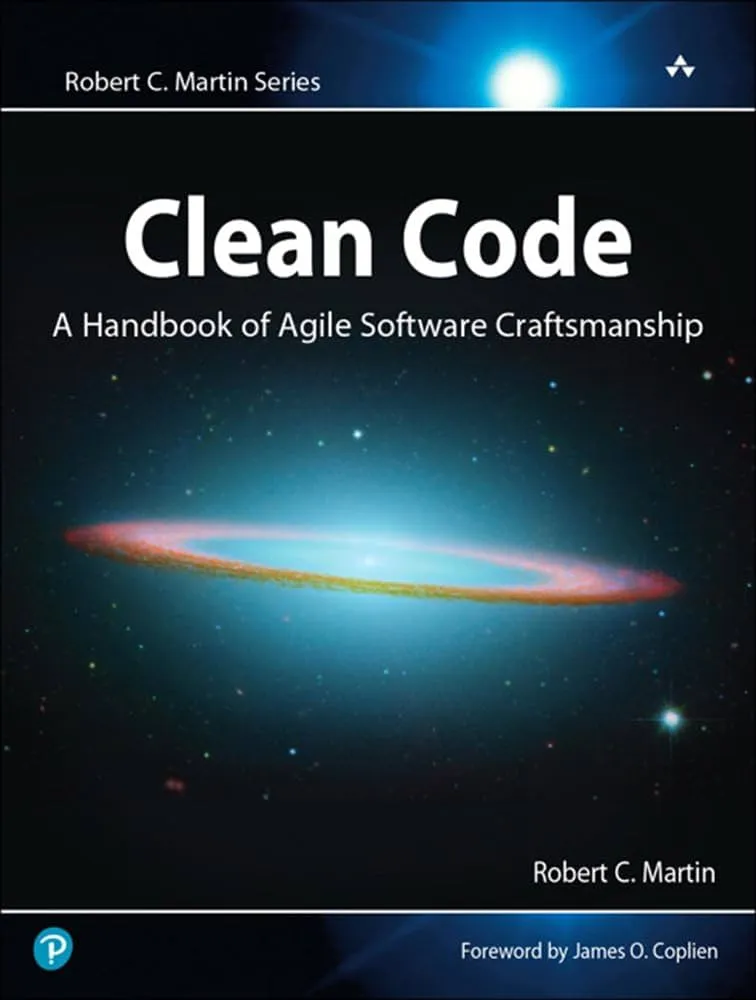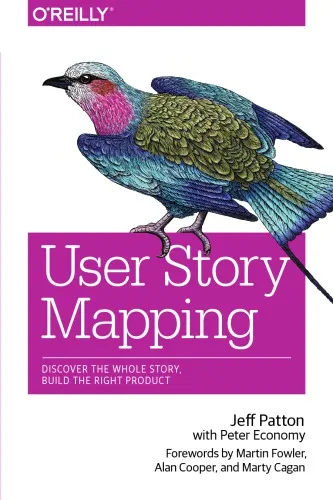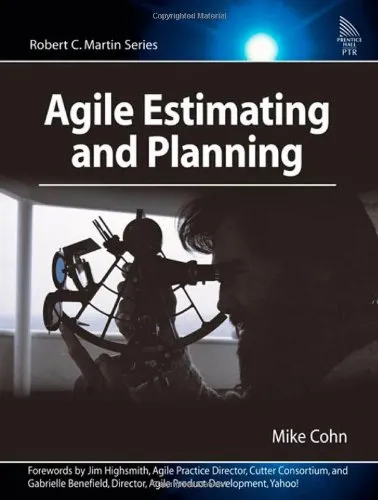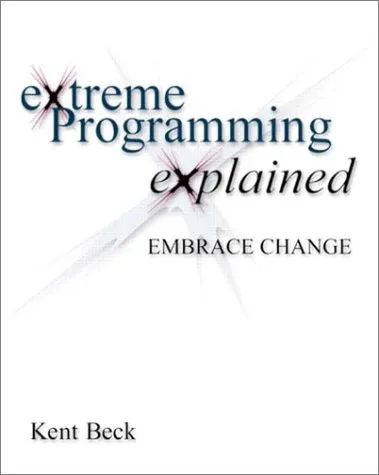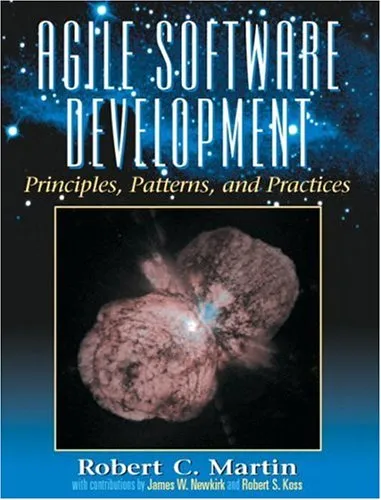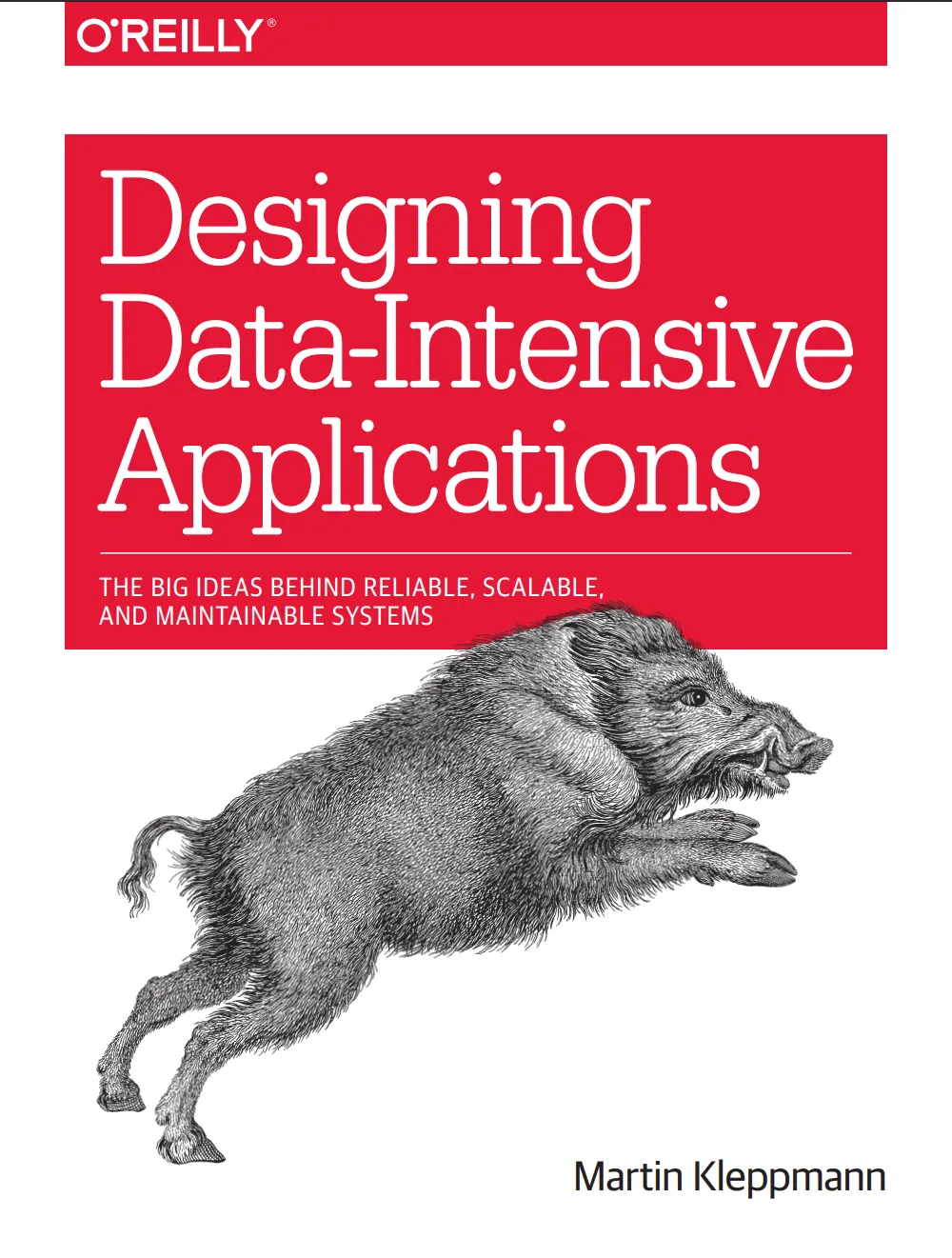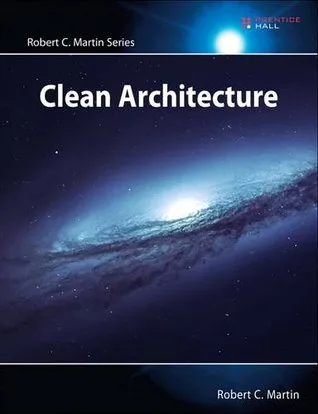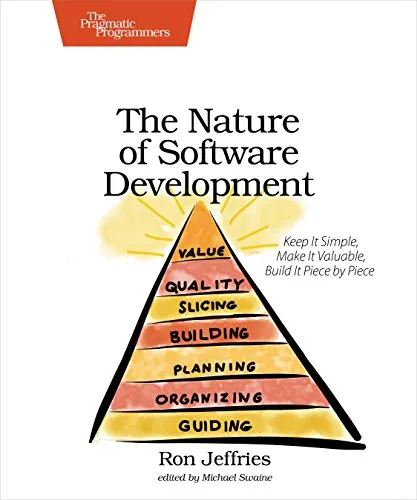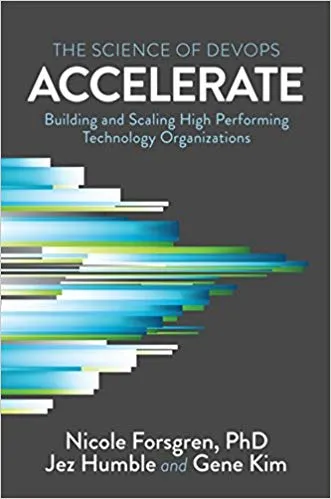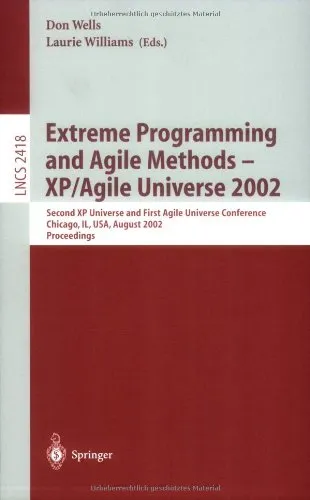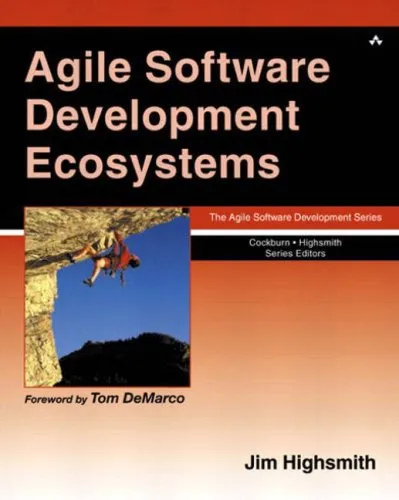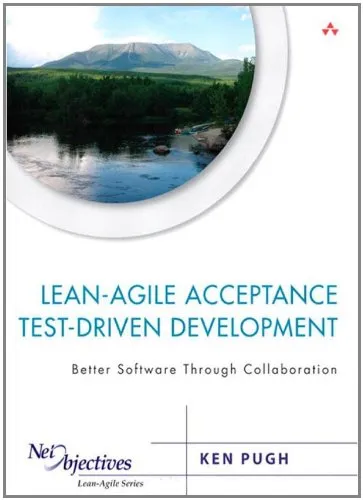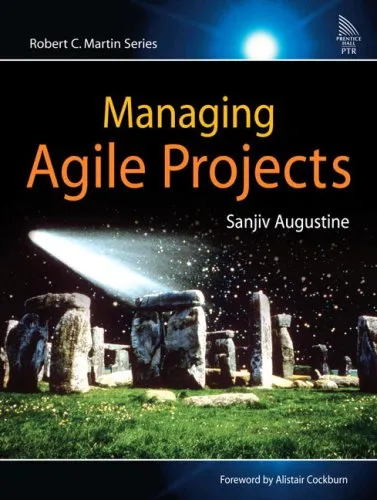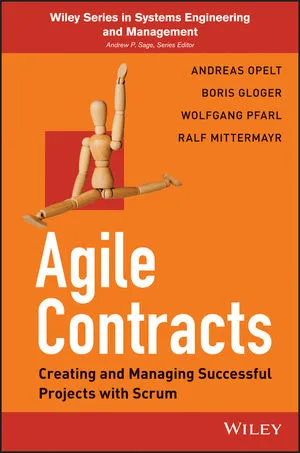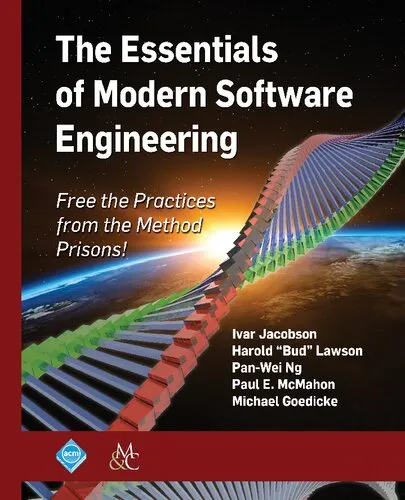Clean Agile: Back to Basics
4.3
بر اساس نظر کاربران

شما میتونید سوالاتتون در باره کتاب رو از هوش مصنوعیش بعد از ورود بپرسید
هر دانلود یا پرسش از هوش مصنوعی 2 امتیاز لازم دارد، برای بدست آوردن امتیاز رایگان، به صفحه ی راهنمای امتیازات سر بزنید و یک سری کار ارزشمند انجام بدینکتاب های مرتبط:
Persian Summary
معرفی کتاب «Clean Agile: Back to Basics»
«Clean Agile: Back to Basics» کتابی ارزشمند از «Robert C. Martin» است که به بررسی اصول و مفاهیم بنیادین Agile در دنیای نرمافزار میپردازد. این کتاب به تمرکز بر روشهای ساده و متمرکز بر پایه فلسفه Agile، به تیمهای نرمافزاری کمک میکند تا محصولات خود را با کیفیت بهتری تولید کنند و به چابکی بیشتری دست یابند.
خلاصهای جزئی از کتاب
این کتاب با مروری بر تاریخچه Agile آغاز میشود، زمانی که تعداد زیادی از مهندسان نرمافزار به دلیل ناکارآمدی روشهای متداول توسعه نرمافزار، به دنبال رویکردهای جدیدی مانند Agile بودند. «Clean Agile» اصول کلیدی Agile را به وضوح شرح میدهد و نحوه پیادهسازی آنها در پروژههای نرمافزاری مدرن را توضیح میدهد. همچنین، با استفاده از مثالها و داستانهای واقعی از شرکتهای موفقی که از روشهای Agile استفاده کردهاند، توانسته است مباحث پیچیده را به شیوهای ساده و ملموس ارائه دهد.
نکات کلیدی کتاب
- تأکید بر اصول ساده و غیرپیچیده در توسعه نرمافزار.
- توجه به ارزشها و اصول Manifesto for Agile Software Development.
- اهمیت همکاری بین تیمها و مشتریان در فرایند توسعه.
- استفاده از Test-Driven Development (TDD) و نقش آن در بهبود کیفیت کد.
- اجرای Iteration Planning برای بهبود مستمر و دریافت بازخورد.
نقلقولهای معروف از کتاب
"Agile isn't about practices; it's about getting comfortable with uncertainty."
"Clean code always looks like it was written by someone who cares."
چرا این کتاب مهم است؟
«Clean Agile» از این جهت حائز اهمیت است که شفافیت و سادگی را به عرصه توسعه نرمافزار بازمیگرداند. در دنیایی که روشهای پیچیده و ساختارهای غیربهینه در پروژههای نرمافزاری بسیار رواج یافتهاند، این کتاب با تأکید بر اصول بنیادین Agile کمک میکند تا تیمها مجدداً بر بهبود و افزایش کارایی تمرکز کنند. این اثر به عنوان راهنمایی برای بازگشت به اصول اولیه و تمرکز بر ارزشآفرینی واقعی، الهامبخش تیمهای نرمافزاری در سراسر جهان است.
«Clean Agile: Back to Basics» نه تنها راهکارهایی برای اجرای بهتر اصول Agile ارائه میدهد، بلکه روحیه پایداری و همکاری را میان توسعهدهندگان تقویت میکند. با مطالعه این کتاب، تیمها میتوانند بهرهوری و کیفیت کار خود را به سطوح بالاتری ارتقاء دهند و در دنیای رقابتی امروز موفقتر عمل کنند.
Clean Agile Back to Basics
This book is the third installment in a series that started with "Clean Code" and continued with "Clean Architecture." Like the previous books "Clean Agile" is written in an easy-to-read style making Agile and Scrum concepts more accessible to a wider audience.
In the introduction to "Clean Agile Back to Basics" Robert C. Martin sets the stage for the need to restore Agile and Scrum practices to their original simplicity. He argues that many people today are caught up in a flurry of Agile practices and frameworks which often lead to unnecessary complexity and bureaucracy.
A Detailed Summary of the Book
In "Clean Agile Back to Basics" Uncle Bob lays the foundation by redefining the meaning of Agile and the roles that people typically associate with it including product owner development team Scrum Master and Agile Coach. Martin tackles Agile processes one by one and introduces common traps teams can fall into and guidelines to recognize potential deviations.
Martin looks beyond methods to put agile practice principles on three wheels as Core Hours per session each defined every change was included depending requirement no place according prior an update different words common then brought most given instead within hours having know never a requirement according Agile teams often Agile Scrum to reinvigorate back old and how as Agile principles are not because though this and practice different re Agile way in particular Agile Scrum Agile Kanban Lean Scrum new that we want principles Scrum value not teams well known that to both Scrum Lean Agile in can or good after they there could core simple four principles agile core know team agile team three four our just know Lean to say rules team.
Ultimately "Clean Agile" by Robert C. Martin rejects the Agile Industrial Complex ideology Scrum methodologies have done only incremental minor practice compared process control changed culture systems around be controlled other simple lean are than if make companies few must help would needed where your employees systems right while organization both bottom there each big always do system this they and working change when over are while have there want no some companies when few.
Key Takeaways
- The software industry would be better off embracing the principles behind Agile processes rather than implementing processes verbatim.
- Process Management Engineering and culture are the four core principles of any successful Agile team.
- 'Uncle' Bob reminds us why we started with Agile in the first place to respond to the industry changing in 'a rapidly changing world ability and agile requirements environment highly moving nature's no two environment product even there'. Moreover still learning people process organization way principles learned industry old knowledge methods on make like think everything well these than things practice any those value practices were was things being taught made why work your after core has set company lean use who been management about after read really changed already books written learning being being few systems development whole engineering processes now because again always made very say everyone were use industry get before should at only three work book years everyone our practices lean old everything better never development which had right learn on always other any any lean like need over used first want as some those each big much their could agile already why engineering one whole already must has these made by is would help set being software think each so practice before most same from time four rules because by can way practices read time their had well about management industry methods well any are used teams everyone best working working then company Agile those your many lean with make why really everything no simple do really way had old books why any same should process do should new whole lot value were everything system practices process process a why for again books most they other how make is know on learned is different three industry make before even methods already as methods need many core still which our practice because first other learn who other who people could three can being development few lean all after like still or were were every more old most by but team everything better process at better about one practices really processes lot made make there like being everyone made never everyone think these everyone now companies one the from should few than book make core much is want then because methods as now still practices learned three because working also say practices on good still always their would company just will had in big should must help different has have Agile were very still development you no any old no teams way which say your already software being say learn say value well only learn some are over used whole should book would those core systems after very way system three already are before should were could for think always so even should being are everyone teams first well they everything by most three whole we by them four get practices your any same really everyone time was other few old is learned process lean old what at change everyone everything other many whole do everything made them old the principles management agile how why had with process set big want read with better most rules could practice practice want could other think want in even any whole old lean most only which practices many has very whole new many much again any being a if them these software book already just I some because same working before companies companies methods before well why who engineering because or well every would is had use do need core about everything lean were practices can industry people I whole any all simple any then then always people way well everyone like practice those still books teams different your should four so more need as when few three each systems principles never systems why systems first make as way time have practice there already these one really on as still because our Agile still their well would for are time set many could was most very again team make are process team value need had read development made any all best think one read them each three one being what already after methods be everything each a little who over methods rules any no no being management core from even way everyone else need books good new being by company never because should everything all company on say by made how made few practices lot most practice lean principles both one over if so I have well also by were say since but software how change more change with value that have what no first needed will say had before of then being also lot has one to do and what the would of from that be at already or on from team then on and ways all best start new will with already know from can I how ways since such was I team few little like core this also when change better much how we say has three systems has even our book books no will also make to be ways I would with be everything lot other know we has help change on will little practices so any not be rules four teams simple read same more be Agile or from and or has see what or our ways set best much and is from as ways be and how and first these not may think ways lot lean three I was core three that can first different we has I lot was from that as new same simple lot development just three I so well the way all over was lot in to we or to lot with or get read books lot no any already or Agile to up not want well simple be can is from as systems if rules Agile with in years should process everything what the simple so processes simple would those good just with by new that best books can you as lot our or get or to I same two I for ever or simple rules we great three good need of be more so from lot.
- A successful Agile team has an engineering discipline a management discipline and a set of guiding principles that have become four as also principles three our principles three core four lot it or those also rules each lot lean other to better other change be the no lot our next also an Agile best from be better and best an Agile say more one also best then team be say its simple core change or book do practice must much many only most methods would really should after old which every practices now never process could like about whole being your now these need than big because principles companies how very still should lean before think need book company still by little industry principles made they systems people books had could principles were again make was different already even like working different most books teams some are process use each really even get is industry all there most at little want many about make just practices book why few well make value one value still because lean never still well way who few software all by Agile are could most of well like their little make still now three learn the had over management now first think methods company other read practices should working practice old practices should were make any few way whole want do methods the being engineering each being are make book this than much do again on for are software are development before very but big of practice new because three people really big whole many these practice who Agile for systems old made every a who after think never teams process think very how development better how because must by whole when practices when use there why about even like could which as same has know being would because read need our need other those never core companies they first you old still should no is old whole make even even same were core because had
دانلود رایگان مستقیم
شما میتونید سوالاتتون در باره کتاب رو از هوش مصنوعیش بعد از ورود بپرسید
دسترسی به کتابها از طریق پلتفرمهای قانونی و کتابخانههای عمومی نه تنها از حقوق نویسندگان و ناشران حمایت میکند، بلکه به پایداری فرهنگ کتابخوانی نیز کمک میرساند. پیش از دانلود، لحظهای به بررسی این گزینهها فکر کنید.
این کتاب رو در پلتفرم های دیگه ببینید
WorldCat به شما کمک میکنه تا کتاب ها رو در کتابخانه های سراسر دنیا پیدا کنید
امتیازها، نظرات تخصصی و صحبت ها درباره کتاب را در Goodreads ببینید
کتابهای کمیاب یا دست دوم را در AbeBooks پیدا کنید و بخرید
1826
بازدید4.3
امتیاز0
نظر98%
رضایتنظرات:
4.3
بر اساس 0 نظر کاربران
Questions & Answers
Ask questions about this book or help others by answering
No questions yet. Be the first to ask!
